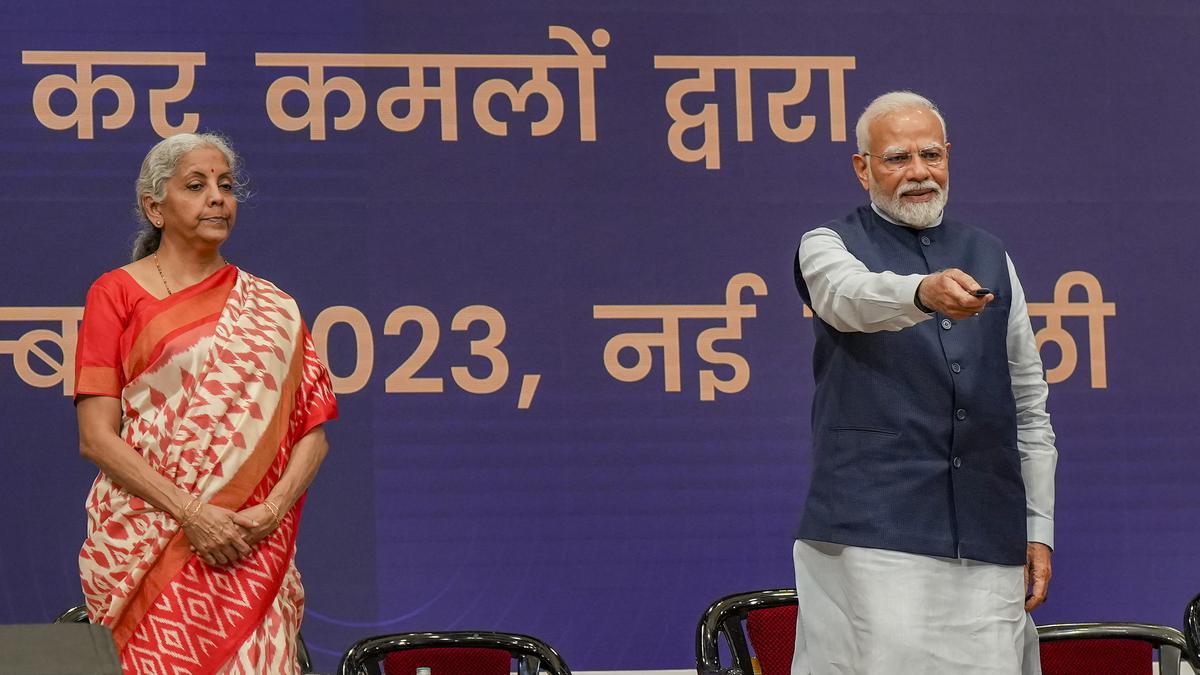
Finance Minister Nirmala Sitharaman commends 'PM Vishwakarma' scheme, celebrates artisans' contribution to India's economy
The Hindu
Nirmala Sitharaman highlighted artsan’s profound impact on the nation’s history and economy.
The launch of the 'PM Vishwakarma' Scheme was met with admiration and respect from Union Finance Minister Nirmala Sitharaman, who paid tribute to the revered artisans of India while highlighting their profound impact on the nation's history and economy.
In an address at the scheme's launch, Minister Sitharaman underlined the invaluable role of artisans and craftsmen in shaping India's self-sufficiency and prosperity. "In our country, 'Vishwakarma' is considered to be the person who created everything around us. He is the master craftsman," said Union Finance Minister Nirmala Sitharaman.
Ms. Sitharaman added, "These well-skilled individuals lived around us, with us, and alongside us. They actually made our economy self-sufficient and productive. That is why even 500 years ago, India could be the world leader and an endowed rich economy whose products were sought after the world over." The 'PM Vishwakarma' Scheme, designed to empower and support artisans, particularly those from the Vishwakarma community, recognizes the immense contributions of skilled craftsmen to India's cultural heritage and economic prosperity.
Minister Sitharaman's words echoed the sentiments of many who understand the historical significance of artisans and craftsmen in India.
These skilled individuals, often working quietly behind the scenes, have played a pivotal role in creating India's rich tapestry of art, culture, and economic vibrancy.
The 'PM Vishwakarma' Scheme aims to provide financial support, training, and opportunities to artisans, ensuring the preservation and promotion of their traditional crafts. It is a testament to the government's commitment to preserving India's cultural heritage and empowering those who have contributed to its prosperity for centuries.
As the scheme takes off, it is expected to revitalize traditional craftsmanship, create economic opportunities, and celebrate the artisans whose intricate work has been woven into the fabric of India's history.It reinforces the idea that artisans, like the revered Vishwakarma, continue to be the architects of India's cultural and economic legacy.













